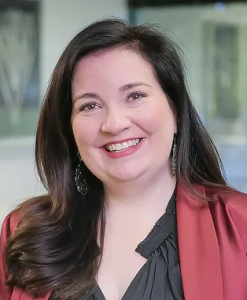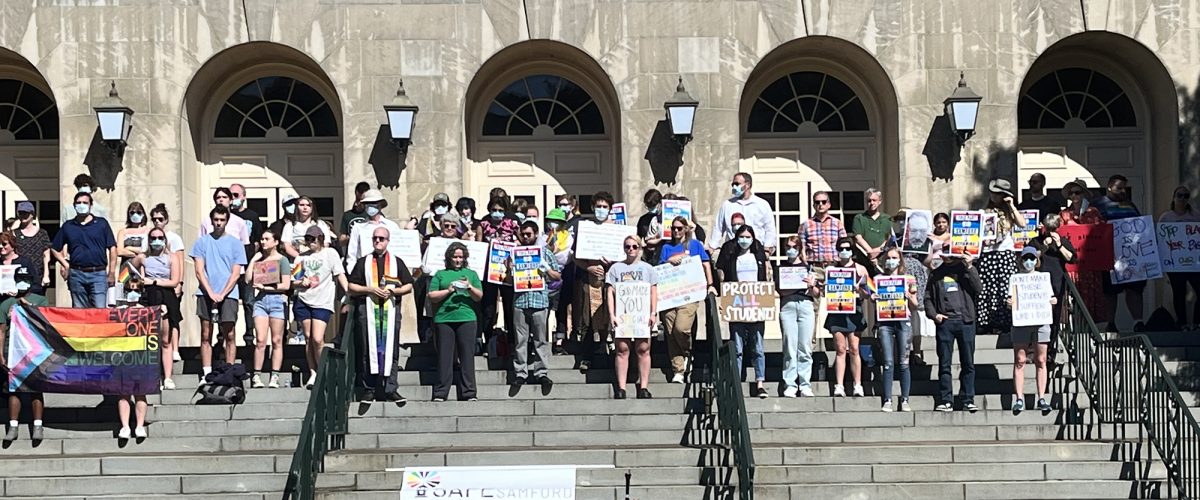LGBTQ students at Samford University say they receive frequent harassment, but they receive “no layer of protection” from the Baptist school in Homewood, Ala., near Birmingham, according to a recent investigation by the online news website Alabama.com.
It’s part of ongoing contention over culture issues that has shaped Samford for most of the past decade.
Alabama Baptists founded Samford as Howard College in 1841 and maintained the Baptist relationship and identity across the generations.
In the summer of 2017, Samford forfeited $3 million per year in funding from the Alabama Baptist State Convention. Then-President Andy Westmoreland told employees and students the university’s voluntary reduction of its state convention allocation to zero had to do with controversy related to Samford Together, a forum for students to discuss topics related to sexual orientation and gender identity “in an open-minded and accepting environment.”
But even though Samford gave up its Alabama Baptist budget allotment, Westmoreland said he had determined recognizing the gay-straight alliance represented by Samford Together was not in the university’s best interest.
“LGBTQ+ students significantly struggle to feel safe within their learning environment if they have no representation on campus through a recognized LGBTQ+ organization or without an anti-discrimination policy preventing them from experiencing bigotry or prejudice.”
In the fall of 2021, Samford disinvited Pulitzer Prize-winning historian and author Jon Meacham from speaking at inauguration ceremonies for the then-new president, Beck Taylor. The university pulled the plug on Meacham after an online petition seeking his removal gained at least 990 signatures. Opponents cited his previous support for Planned Parenthood as the problem, particularly given the status of the inauguration in the life of the university.
Five months later, Meacham was invited to a university emphasis called “Love Your Neighbor Week.”
Then, in the fall of 2022, Samford again made national news for denying participation for Presbyterians and Episcopalians at an event on campus.
An Alabama.com report at the time said the university denied invitations to Presbyterian Church (USA) and Episcopal Church college chaplains who asked to be included in a campus ministry fair. They were not allowed to participate, they said, because both denominations allow same-sex marriage.
The latest Alabama.com report said LGBTQ students don’t take comfort in Title IX, the federal law designed to protect students from sex discrimination, which in general has been widened to prohibit discrimination based upon sexual orientation and gender identity.
“We can report stuff to our Title IX office, but there’s no infrastructure in place to actually take any action,” the website quoted Courtney Smith, a junior who leads Samford Prism, an LGBTQ student group that does not possess official university recognition but meets informally off campus.
“Even if you do report something, nothing is going to be done about that, which means there is no layer of protection against harassment for LGBTQ students on campus,” she said.
In the fall semester, students who staged a protest seeking LGBTQ students’ protection sent a letter to Samford leaders.
“LGBTQ+ students significantly struggle to feel safe within their learning environment if they have no representation on campus through a recognized LGBTQ+ organization or without an anti-discrimination policy preventing them from experiencing bigotry or prejudice,” the letter said.

Scarlet Thompson
Scarlet Thompson, Samford’s executive director of university communication, told Alabama.com: “Samford does not unlawfully discriminate on any basis. The law recognizes Samford’s right, as a religiously affiliated institution, to act in accordance with its religious values and beliefs.”
Indeed, some faith-based schools have received Title IX exemptions related to LGBTQ issues. For example, the U.S. Department of Education granted Baylor University a Title IX-related exemption last fall.
But that’s still problematic for LGBTQ students, Joe Baxter, an interim leader with the Religious Exemption Accountability Project, told Alabama.com
If a school’s governing body believes homosexual activity is a sin, then it can be exempt from providing some Title IX protections, he said, adding: “What this really does is it leaves a gaping hole in protection for students. It puts the students at a great risk of harm.”
In a statement provided to BNG, Thompson stressed Samford’s care for its students and commitment to protect them.
“Samford University’s policies seek to protect all our students from harassment and intimidation,” she wrote. “The university prohibits unwelcome and offensive conduct based on sexual orientation or gender identity. The university’s Honor Code explicitly forbids students from engaging in abusive behavior that demeans another individual or group on the basis of sex, race, ethnicity, religion, disability, sexual orientation, or gender identity.
“We care deeply about every single Samford student.”
Students told Alabama.com they still struggle.
“Our big thing is trying to get students to find community,” Smith said. “Especially on a religious campus, it can be really, really hard to find other queer students.”
Related articles:
Samford forfeits Baptist funds but pulls plug on student gay-straight alliance
Samford cancels Jon Meacham speech after ‘pro-life’ activists spark challenges
Samford University excludes Presbyterians and Episcopalians
Alabama Supreme Court declines to stop Samford from taking house of former fraternity


